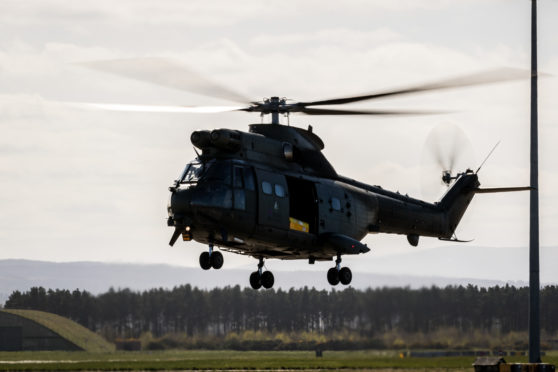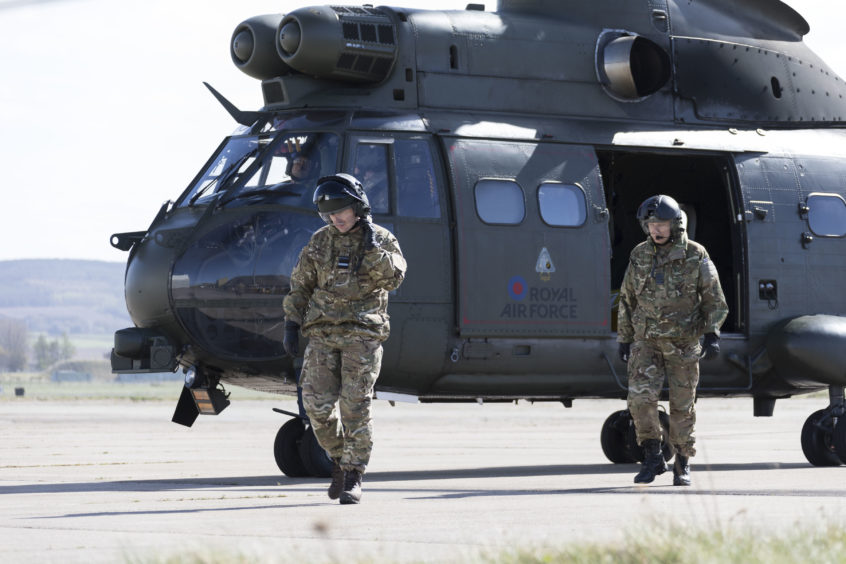Air force personnel dispatched to Moray to support the response to the coronavirus pandemic are expected to become busier in the weeks ahead.
Three Puma helicopters are currently operating from Kinloss Barracks tasked with responding to incidents across Scotland.
Already the aircraft have been used to transfer a critically-ill coronavirus patient from the Isle of Arran to hospital in Kilmarnock for treatment.
Recently the helicopters have been supporting teams in the Western Isles with training for medical evacuations.
And it is expected that the crews will become even busier in the area in the coming weeks.
Gordon Jamieson, chief executive of NHS Western Isles and chairman of the local resilience pandemic group, said: “It’s really reassuring to have the asset here and all the associated personnel.
“Here in the Western Isles we are behind the UK, and in fact behind mainland Scotland, in coronavirus infection rates but we are not complacent about that.
“We do expect in a few weeks’ time that we will potentially feel the full force of Covid-19 and so we are using this time to be prepared and to plan every single day so we’re ready when that challenge comes.”
One of the Pumas at Kinloss Barracks has been tasked specifically for medical evacuations with one for transporting supplies and another on standby.
The aircraft has been selected for the task because it can land in small locations with less disruption from the blades while still being able to carry two stretchers and a medical crew.
A support crew of 56 personnel have travelled to the Army base in Moray from Oxfordshire for the mission.
Squadron Leader Johnny Longland, the Puma detachment commander, explained the recent training in the Western Isles has involved several agencies.
He said: “We have paramedics from the islands working with our crewmen to look at how they can integrate their equipment with the Puma.
“NHS Scotland and coastguard teams of paramedics, clinicians and planners were primarily looking at how they can put stretchers in the back of the aircraft and continue to perform their essential care for the patient.”

